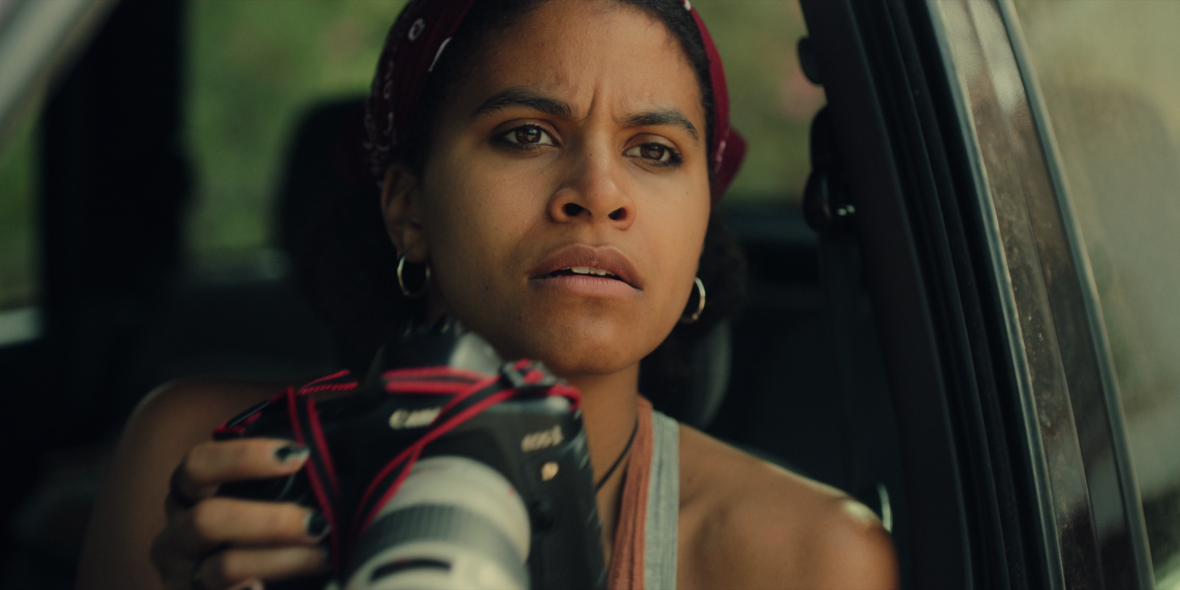We bring news that matters to your inbox, to help you stay informed and entertained.
Terms of Use and Privacy Policy Agreement
WELCOME TO THE FAMILY! Please check your email for confirmation from us.
OPINION: Netflix’s hit TV series, which recently dropped its sixth season, normalizes Blackness in interesting ways.
Editor’s note: The following article is an op-ed, and the views expressed are the author’s own. Read more opinions on theGrio.
“Black Mirror” is the best show on TV now. The sixth season of this legendary Netflix show by Charlie Brooker just dropped last week — do not miss the mind-bending episode “Joan Is Awful.” I love the show’s dystopian view of a world that’s challenged by technological advances that push humans into fascinating or frightening situations built today. But I want to talk about a whole other aspect of the show that I love. “Black Mirror” is a show that normalizes Blackness.
“Black Mirror” is not usually about race in an overt way — its creator is British so we can’t expect his show about technology and the modern world to speak about the American racial landscape. But in the world that “Black Mirror” creates, Black people exist as normal people. We are protagonists, we are lovers, we are integral to the show and not one-dimensional characters who are there to pose a challenge to the white characters or to make them look moral and beneficent.
On many of the great shows of modern TV, Black people are marginalized or erased. In “The Sopranos” and “Succession” you rarely get Black characters, which is a commentary on the segregated world the characters live in. “Breaking Bad” includes Black and brown characters but it’s about a white everyman who descends into a criminal underworld that’s run by Black and brown criminals, armed with nothing but his brilliance and his character. His success in that underworld is gratifying to white viewers. Of course, “The Wire” is completely different. It’s a show that often centers Black people and shows us the humanity, intelligence, and charisma of Black criminals. As for “Black Mirror,” they are not talking about Blackness and yet they’re still making a statement.
In the world of “Black Mirror,” interracial relationships are normal. We get mixed couples in many episodes, including “Black Museum,” “Hang the DJ,” “San Junipero,” “Crocodile,” “White Bear,” and “15 Million Merits.” In these stories, which aren’t about race or the supposed uniqueness of interracial relationships, the Black characters aren’t there to send a message about some idea. They’re not there to prove the goodness of the white character or to be a hurdle they must circumvent. They’re just characters on the stage who are helping tell the story and sometimes are the center of the story even though it’s not directly about race. Black characters don’t always get that luxury in TV and movies. Their humanity isn’t always assumed. On Black Mirror it is.
One of my favorite “Black Mirror” episodes is a deep dive into the homoeroticism at the heart of some close straight male friendships. “Striking Vipers” stars Anthony Mackie and Yahya Abdul-Mateen II — yes, two Black movie stars — as close friends who play a role-playing kung fu video game together. In the game, which they play over the course of years, one of them plays as a female fighter and the other as a male. Inside the game, they fight but eventually end up having passionate sex. I immediately saw this as symbolic of the ways straight men sometimes love each other in physical ways.
Mackie and Abdul-Mateen are two of the many Black stars who have appeared on “Black Mirror” before becoming massive stars. Their eye for casting is extraordinary. Daniel Kaluuya was on years before “Get Out” was released. Letitia Wright was on the year before “Black Panther” came out. Michaela Coel was on years before “I May Destroy You.” In the new season, we get episodes featuring established Black stars like Zazie Beets from “Atlanta” and Myha’la Herrold from “Industry.”
My favorite moment in “Black Mirror” history, as a Black fan of the show, is the ending of “Black Museum,” where a Black woman gets revenge on a white man who’s been profiteering off of Black trauma and Black suffering. If you know, you know.
The new season is filled with more “Black Mirror” magic. I finished it in a day and started going back through old favorites like “Shut Up and Dance,” “Nosedive” and “Metalhead.” They’re all just as sublime as I remember them. I love “Black Mirror,” and I appreciate the love it’s shown toward its Black characters.
Touré is a host and Creative Director at theGrio. He is the host of the docuseries podcast “Being Black: The ’80s.” He is also the host of the podcast “Toure Show” and the podcast docuseries “Who Was Prince?” He is the author of eight books including the Prince biography Nothing Compares 2 U and the ebook The Ivy League Counterfeiter.
TheGrio is FREE on your TV via Apple TV, Amazon Fire, Roku, and Android TV. Please download theGrio mobile apps today!

